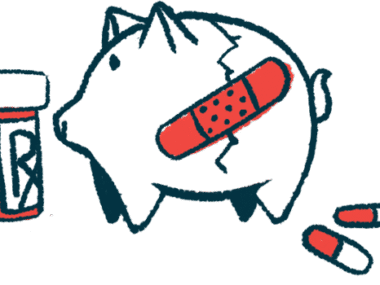American Liver Foundation aiming to improve care for patients
New Project Echo seeks to educate healthcare providers on MASLD
Written by |

The American Liver Foundation (ALF) has launched two projects that aim to improve care for people with metabolic dysfunction-associated steatotic liver disease (MASLD) and other forms of liver disease.
One of these new initiatives, dubbed Project Echo, will work to better educate healthcare providers who aren’t liver specialists about MASLD, with a particular eye toward helping these clinicians to be better able to diagnose and treat the condition.
MASLD, previously known as nonalcoholic fatty liver disease or NAFLD, is characterized by a buildup of fat in the liver in people who have underlying metabolic conditions like diabetes or high blood fat levels. Untreated, it can cause inflammation and scarring, or fibrosis, in the liver, which in turn can set the stage for life-threatening problems like liver failure and liver cancer.
But while the consequences of MASLD can be very serious, the disease often goes undetected until it’s already started to cause notable liver damage. By better educating general healthcare practitioners, Project Echo aims to change that.
“Diagnosing [MASLD] early is crucial to a patient’s long-term success and providing our non-liver partners with the education, tools and insight they need to recognize the early warning signs and help prevent progression is key,” Emmanuel Thomas, MD, PhD, board chair of ALF, and an associate professor at the University of Miami School of Medicine, and a member of University of Miami’s Schiff Center for Liver Diseases, said in a foundation press release.
The other new ALF initiative is the American Liver Foundation Patient Registry, a first-of-its-kind effort to collect data on people affected by MASLD and other liver diseases.
American Liver Foundation also launching patient registry
Project Echo will consist of five once-monthly sessions for clinicians, held live via Zoom, starting in August. Each forum will cover a different topic. All run from noon to 1 p.m. ET.
Up first is a session that will provide attendees with an overview of MASLD, followed by a second that will focus on diagnosing the condition, and a third on treatment for any stage of the disease. The fourth will focus on patient education, and the fifth on future advances in the field.
The project’s target audience includes primary care providers, community health workers, and health educators. Registration is free, and additional details are available on the project website.
Also newly launched by the nonprofit is its American Liver Foundation Patient Registry, designed to collect key data on liver diseases from a patient’s perspective.
There are more than 100 different types of liver disease, and it is imperative that researchers have access to information from the patient’s perspective to help discover better treatments and cures.
Such diseases include hepatitis, some forms of cholestasis such as that occurring during pregnancy or due to medication, and chronic forms of cholangitis like primary biliary cholangitis and primary sclerosing cholangitis.
Hepatitis, most often caused by viruses, is a condition marked by liver inflammation. Cholestasis refers to the slower or stalled flow of bile, a digestive fluid, from the liver to the intestines; cholangitis, meanwhile, refers to conditions marked by inflammation of bile ducts, of those that transport the digestive fluid.
Like MASLD, all of these conditions, if left untreated, can lead to progressive liver damage that can ultimately result in liver failure, where a liver transplant may be needed.
“There are more than 100 different types of liver disease, and it is imperative that researchers have access to information from the patient’s perspective to help discover better treatments and cures,” Lorraine Stiehl, CEO of the ALF, said in a separate press release from the foundation.
Having access to lots of data, from many patients, is key for accelerating research into any disease. However, no registry had been established to date in the U.S. to collect data on people affected by liver diseases.
“Until now, there has not been one central place where researchers interested in liver disease can access information on a patient’s disease history and more importantly, how patients are managing their disease and its often-debilitating symptoms and [simultaneous conditions] such as diabetes, heart disease and obesity,” Stiehl said.
2 new initiatives aim to help researchers, clinicians and ultimately patients
Improving patient care is the ultimate endpoint of the new initiative, according to Helene Jordan, PhD, the ALF’s national senior director of research program management.
“Our goal is to make a difference in liver disease research and help researchers carve out new and exciting pathways to discover better treatments and cures,” Jordan said.
The new registry is open to everyone 18 and older with any liver disease. According to the AFL, participation is a straightforward process in which patients will be asked to complete online surveys about their disease, health, and lifestyle, as well as some basic demographic info. Patients completing the initial surveys may be eligible to participate in additional research through the registry.
“We have strived to make the process as simple and user-friendly as possible for patients,” said Jordan, who helped lead the creation of the registry.
In addition to providing a resource for scientists doing research, the registry is expected to help individual patients learn more about this condition overall, Jordan noted.
“We are thrilled to give patients the opportunity to help change the face of liver disease for future generations by sharing how their liver disease affects them,” Jordan added. “We hope all adults at any stage of liver disease, including transplant recipients, will consider participating.”




